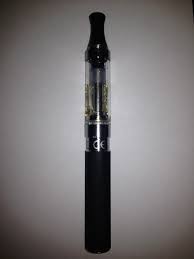By Jillian Stanphill, Business Writer
The electronic cigarette business is lighting up the drug industry, but may be extinguished soon when the Federal Drug Administration (FDA) begins to regulate sales.
Electronic cigarettes are a new tobacco product marketed to people trying to find a healthier alternative to traditional tobacco products such as cigarettes.
But the FDA does not regulate these products, so many potential consumers could struggle to believe the promises these “vapor” companies are claiming.
An e-cigarette is a battery-powered cartridge that does not contain tobacco itself but does have a solution with the active ingredient, nicotine, which is a product derived from tobacco.
The battery heats up a coil that turns the solution in the cartridge into a vapor, which is then inhaled by the consumer.
The FDA Center for Tobacco Products (CTP) only regulates these products: smokeless tobacco, roll-your-own tobacco, cigarette tobacco and cigarettes.
The CTP is proposing an addition to its authority to include e-cigarettes.
This amendment to the Family Smoking Prevention and Tobacco Control Act would allow the CTP to regulate “hookah, electronic cigarettes, cigars, pipe tobacco, other novel tobacco products, and future tobacco products,” according to the FDA.
The CTP has been unable to regulate these substances and devices in the past, because “they do not contain cut, ground, powdered, or leaf tobacco and instead contain nicotine extracted from tobacco.”
Los Angeles has taken the issue of e-cigarettes into its own hands by implementing the same ban on smoking regular cigarettes in public places on e-cigarettes.
E-cigarettes will no longer be allowed to be used at bars, nightclubs and restaurants, as well as public places like farmers markets, parks and beaches.
According to City News Service, a southern California news outlet, proponents of e-cigarettes said they are angry about this ban. They claim that by making e-cigarette users stand in designated smoking spots with regular cigarette users, it will lessen their chances of quitting or switching to e-cigarettes.
The problems arising from e-cigarettes aren’t solely focused on adult public health concerns, but on youth ones. CNN followed a report released by Congress that concluded that e-cigarette companies “aggressively (promote) their products by using techniques and venues that appeal to youth.”
The report also stated there are “no federal limits on how they [e-cigarette companies] can market their products,” and “only twenty-eight states restrict the age of purchase for e-cigarettes.”
The companies selling these e-cigarettes say their goal is to assist cigarette users in quitting smoking by switching to e-cigarettes, allowing them to then break the bad habit completely.
However, they promote their products at concerts, sporting events and other youth focused activities, along with lots of giveaways of product samples.
Earlier this month, the FDA released a review containing data that showed an increase in youth use of e-cigarettes over any other tobacco product.
The Smoke Free Trade Association released a statement saying, “We encourage responsible marketing directed to those over the age of 18,” and the industry “does not support, and our industry does not use, youth-oriented product marketing.”
As e-cigarettes grow in popularity and continue to be unregulated, it is important for consumers and citizens to be aware of what they are putting into their bodies and what is in the air they breathe.
E-cigarettes are addictive, and there have been numerous reports of exploding batteries and injuries from e-cigarettes catching on fire, along with accounts of health issues mirroring that of actual cigarette damage: shortness of breath, wheezing, coughing and loss in taste bud ability.
There is no definition word on when the FDA will begin regulating these products, but until then, it is up to the consumers to gain an informed opinion for their own health.



















